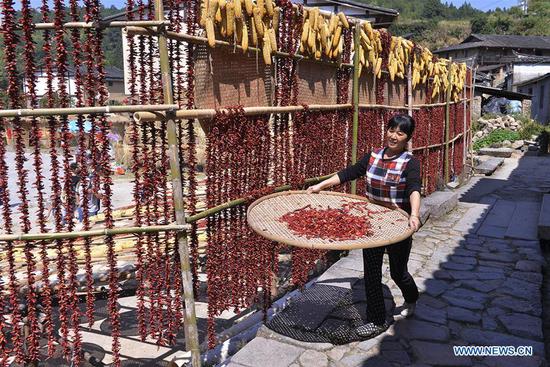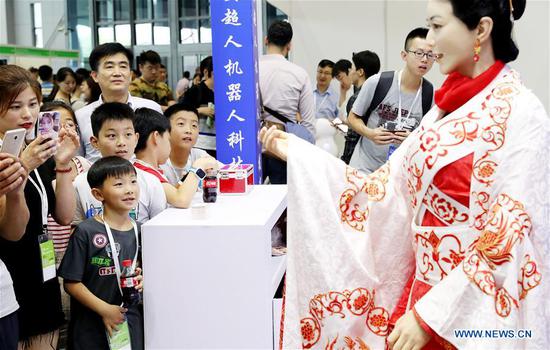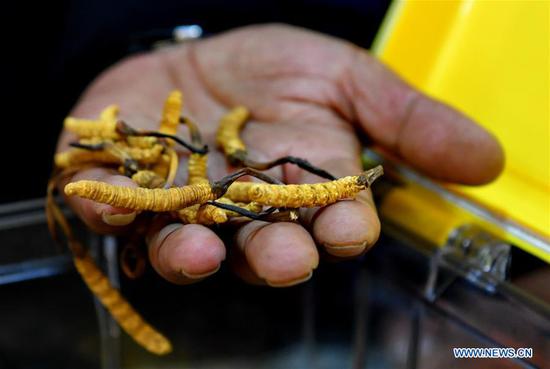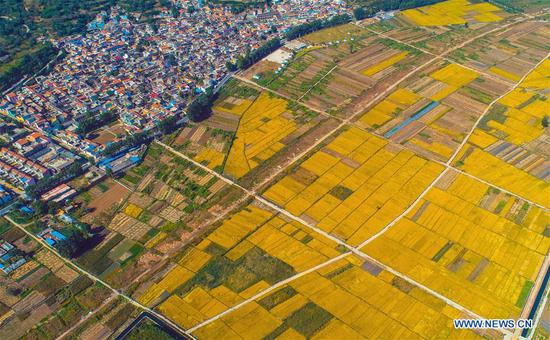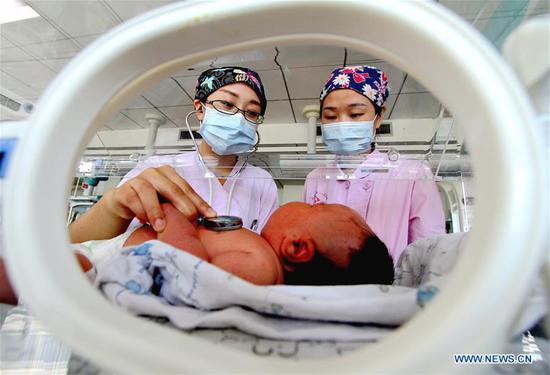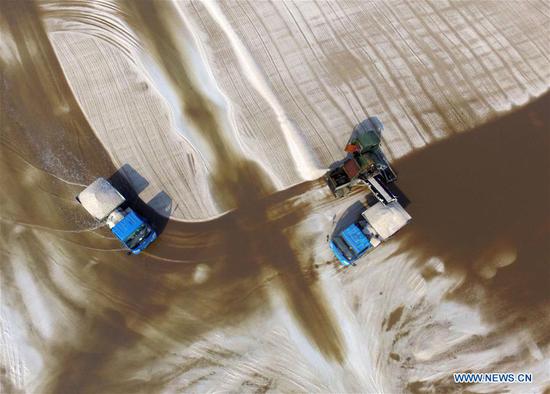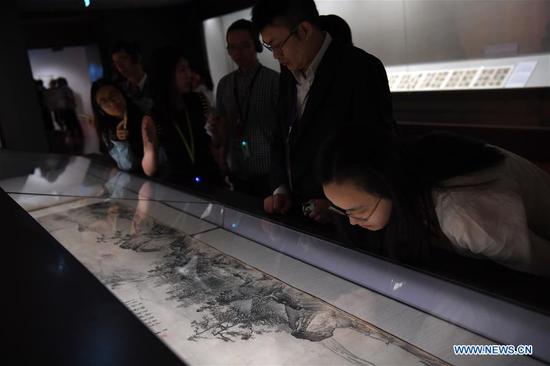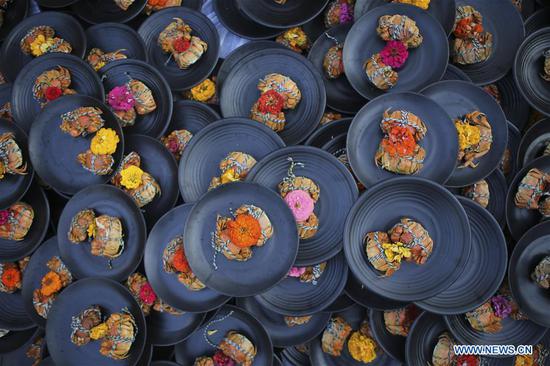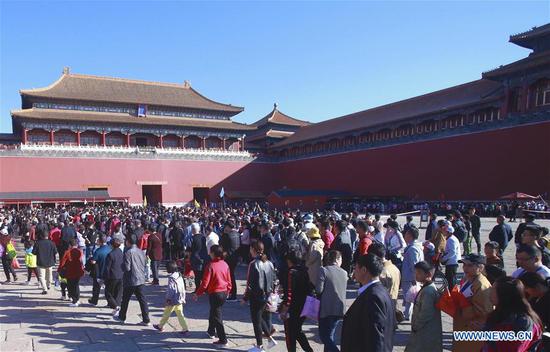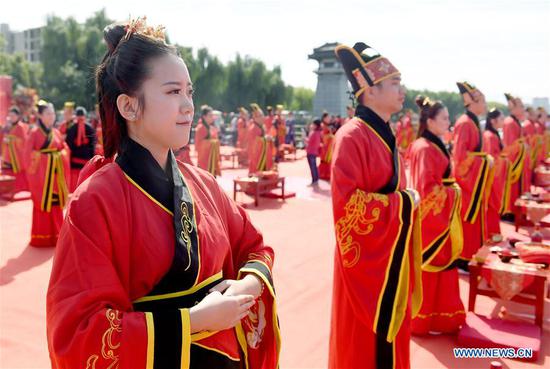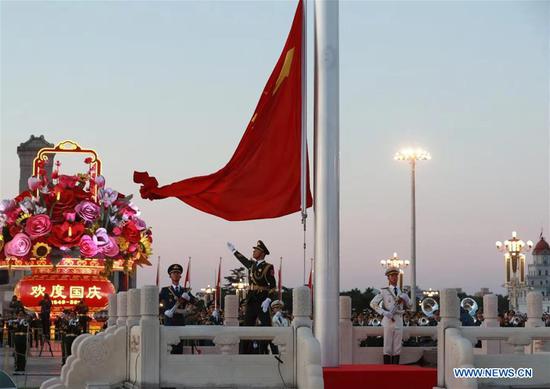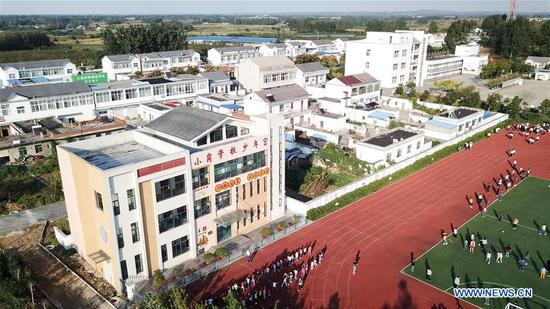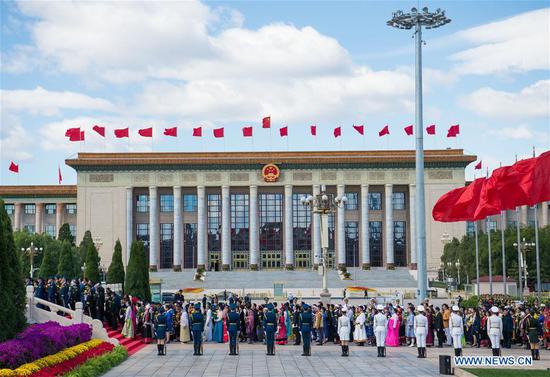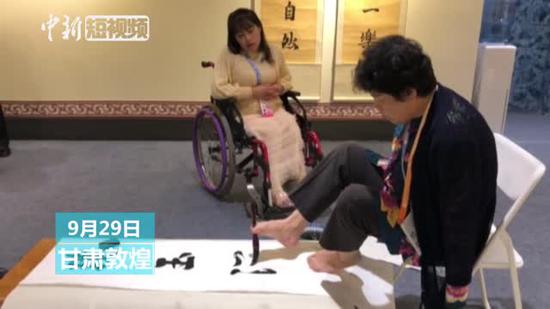
A futuristic concept car at the 2018 World Internet of Things Expo in Wuxi, Jiangsu province, last month is equipped with Internet of Vehicles technology, which collects and analyzes traffic and driving data. (CHENG JIABEI/FOR CHINA DAILY)
Number of self-employed people has risen substantially since 1978
In the 40 years since China began its reform and opening-up, the number of self-employed people in Wuxi, Jiangsu province, has multiplied by 752 times.
In 2017, the city's GDP stood at 1.05 trillion yuan ($153 billion). Its private economy, which reached 689.6 billion yuan, accounted for 65.6 percent of the GDP, according to the Wuxi bureau of statistics.
Wuxi has 12 enterprises on the list of China's top 500 enterprises and 24 on China's top 500 manufacturers list. Twenty-five enterprises have annual operating income exceeding 10 billion yuan.
As the birthplace of China's modern industry and commerce, Wuxi has been known as "little Shanghai" for years due to its flourishing economy, especially private economy.
In 1978, Wuxi only had 506 self-employed people, among whom 45 worked in the downtown area. By July this year, it had more than 380,000 people registered as self-employed, according to the Wuxi industry and commerce bureau.
In 1980, Wuxi restarted registering private companies. By the end of the 1980s, more than 70,000 people had been registered as owning such companies. Cui Hailong, a self-employed man who now runs many companies across the country, was one of them.
"People here have the tradition and courage to set up their own businesses," said Cui. "Good policies from the government help accelerate the growth of the private economy."
Cui started to sell peacock feathers when he was a college student in 1984. He and a friend managed to make 9,000 yuan by selling the first feathers they collected in Yunnan province.
"That amount of money was equal to 20 years of an ordinary worker's salary at the time," said the 54-year-old who gave up his job as a civil servant and registered his first company in 1986.
Later, he started his own clothing wholesale business, advertising company and a trading company. He now owns dozens of companies in many Chinese cities, delving into such areas as real estate, medicine and education.
"You could start your business if you had ambition," said Cui. "Now it's more convenient to register a company, but to run a successful one is becoming harder due to fierce competition."
Private county and village companies in Wuxi also flourished after late leader Deng Xiaoping made the "Tour through the South" in 1992 and China's reform and opening-up regained momentum.
In the 1980s, Hodo Group, which is one of China's top 500 enterprises, was just a village-level knitting factory on the verge of bankruptcy.
Its president, Zhou Haijiang, said he saw that the private economy would flourish when he was in college in Shenzhen. He returned to Wuxi to join his father's factory and started his career.
In 2001, Hodo was successfully listed. Its sales surged from 6 billion yuan in 2003 to 50.3 billion yuan in 2015.
"The country has improved policies and environment for private companies to develop," said Zhou, who acknowledged that private companies still face many challenges. "Many private company owners used to feel anxious about monopoly, but that situation has been improving."
Wang Maozhang, former director of Wuxi's industry and commerce bureau, said the number and quality of private companies have greatly advanced over the past 40 years.
"The policies and markets have kept improving and growing for the private economy," he said.
In 2017, 71,273 people registered in Wuxi to start new careers as self-employed, according to the local statistics bureau.











